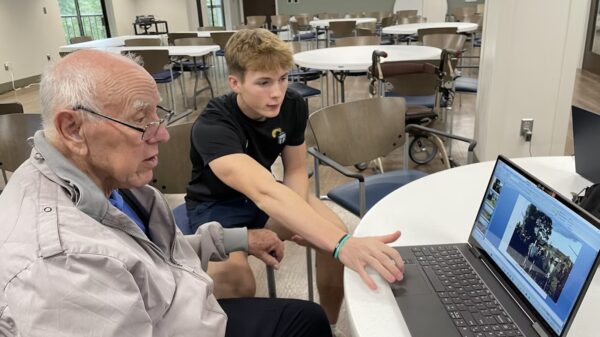Two Senate committees met Monday on the 2020 budgets and moved the 2021 budgets. Despite the massive economic shutdown that has crippled the state economy and thousands of businesses, reporters were assured that there will not be any need to prorate either the general fund or the education trust fund budgets in 2020.
Senate President Pro Tem Del Marsh, R-Anniston, told the Alabama Political Reporter that planned raises for teachers and state employees, however, would have to be scrapped.
“The state employees and teachers I talked to are just glad that they still have a check coming in through all of this,” Marsh said.
The Senate Finance and Taxation General Fund Budget Committee and Senate Finance and Taxation Education Budget Committee both substituted the governor’s budget requests for substitute budgets without all of the same spending increases that the governor’s finance team had asked in rosier economic times back in February when the economy was booming – before the forced economic shutdown to fight the coronavirus.
Most state agencies are level-funded at 2020 levels though there are increases in both budgets.
State Senator Clyde Chambliss (R-Prattville) vociferously opposed the substitute state general fund budget (SGF), arguing that the state does not yet what the revenue will be like for 2021, thus can not begin to write a budget.
Chambliss argued that the budgets should be “bare bones” budgets without increasing anything over 2020 levels and with no conditional appropriations for capital improvements. Chambliss warned that it would be difficult to take the money back in the next legislative session if revenues fail to live up to expectations.
Senator Jim McClendon (R-Springville) said that he was here in 2008 and 2009 when the state had to prorate budgets in the Great Recession and it is unpleasant, but you just zero out items in the budget and spend less money than was first promised.
Chambliss lamented that the legislature had not passed his “rolling reserve” for the general fund legislation.
Chambliss claimed that if the legislature had passed the general fund rolling reserve last year we would have $43 million to apply towards this. If they had done this four years ago, we would have $100 million. Chambliss said that his bill has received strong support in the Senate; but has not gone anywhere in the House. Chambliss asked his fellow Senator to work to pass the general fund rolling reserve bill during the remaining days in this session.
“It won’t help now; but it will help in five years when this happens again,” Chambliss said.
Senate Finance and Taxation Committee Chair Arthur Orr (R-Decatur) said that the education trust fund budget (ETF) will be fine for 2020 thanks to the strong economy and the record revenues that were coming in from October 1 to the beginning of March. The legislature had carried over a large cash balance from the 2019 ETF to the 2020 which also helped.
Chairman Orr explained that if the state does not spend any of the money in the technology fund, avoids any supplemental appropriations in 2020, that with the rolling reserve in the ETF they can roll a $billion from the 2020 ETF to the 2021 ETF in case 2021 revenues fall short.
APR asked Orr if the state would not be able to add any new pre-K classrooms in the 2020/2021 school year due to the revenue shortfall.
“No, you can not say that,” Orr replied. There is an increase in the 2021 budget.
Sen. Marsh said that the state has received $1.7 billion in CARES Act funding and that he wanted to spend $800 million of that to expand broadband.
APR asked why not use some of that for COVID-19 testing.
Marsh said that the state has received a total of $3 billion in federal funds. $1.3 billion was appropriated directly to the Alabama Department of Public Health and other agencies for things like testing.
APR asked: the CDC Director warned that he fears that COVID-19 will return in the winter with the flu and it will be worse the second time around. Is there any money in this budget for a second school shutdown.
“That’s why I want to do the broadband,” Marsh said. If we had this in place the children would still be in school now learning. Instead they are missing instruction. We are 50th in education. We can’t afford for them to lose any more instruction.
The Montgomery Advertiser’s Bryan Lyman asked: why not use $324 million to pay the match to expand Medicaid?
“I want to do something that will help all of the people in Alabama,” Marsh answered.
Senate Finance and Taxation General Fund Committee Chairman Greg Albritton (R-Atmore) explained that the federal CARES Act money cannot be used to make up for budget shortfalls and there are restrictions on what that money can be used for and those rules are changing. If the federal government determines that that money was spent improperly they can claw if back.
During the Committee meeting, Sen. Billy Beasley (D-Clayton) introduced a motion to restore $400,000 that was cut from the State Auditor’s office. The committee tabled Sen. Beasley’s amendment.
APR asked why the Auditor was receiving over a 40 percent cut when every other SGF agency was level funded or receiving an increase.
Albritton replied, “I don’t know why he got an increase. $500,000 is what he got last year. If there is a need he can come talk to me.”
APR asked: the state is under a court order to add 2,000 prison guards. We had offered to raise the pay in order to recruit more guards. Is there a danger that by not increasing the pay for corrections officers that we could face a situation leading to a federal takeover of our prisons that will cost us more money in the long run?
Albritton said that we are considering that. Corrections is able to move some money over that was unused so that effectively the corrections officers will effectively see a raise. We may consider doing something like a hazardous duty pay.
Albritton said that Pardons and Paroles did not use all of their money last year so they could be cut that amount of money from this year’s budget.
Chambliss warned that in Albritton’s budget the ending 2021 balance is $100 million smaller than the ending 2020 budget and that this is a deficit.
Sen. Linda Coleman-Madison (D-Birmingham) wanted to make a program to fund airport improvements a conditional appropriation.
“No one is traveling now,” Coleman Madison explained.
State Senator Cam Ward (R-Alabaster) said that we have created a system where the courts and the district attorneys are funded through a series of fees, fines, and court costs; but because of the shutdown, they can’t collect their fees.
Sen. Gerald Allen (R-Tuscaloosa) agreed and said that he has talked with the Tuscaloosa District Attorney and we need to do something for the district attorneys and the courts.
Reporters asked why not wait and come back in July or August when we know more about federal funding and actual revenues.
Marsh said that the legislature has a constitutional duty to prepare budgets and that school superintendents need some certainty in how much money they will be getting so that they care prepare for the school year.
The Alabama Legislature will return on May 4.
Marsh dismissed concerns about safety expressed by one Senator, “With the state economy reopening it would be hypocrisy” for the legislature not to do its duty.



















































